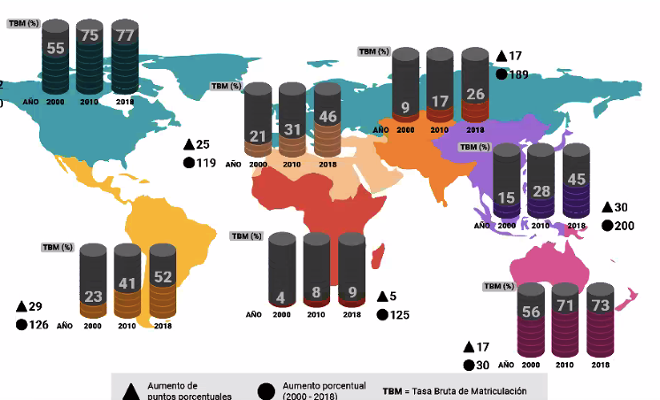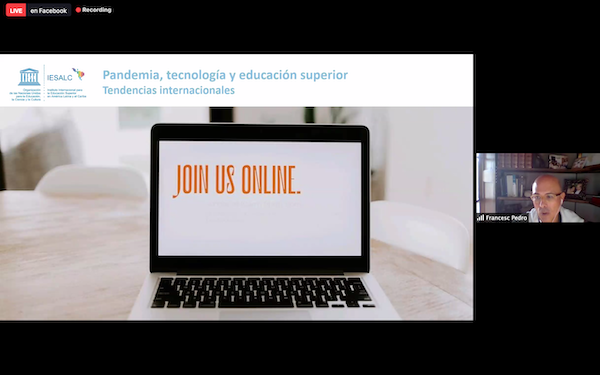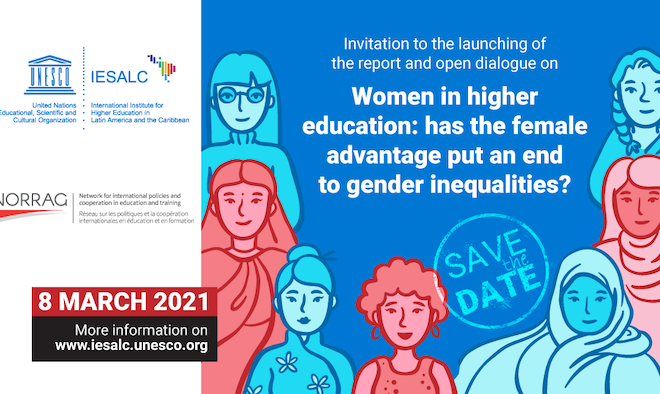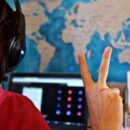Technology has arrived to stay in Higher Education
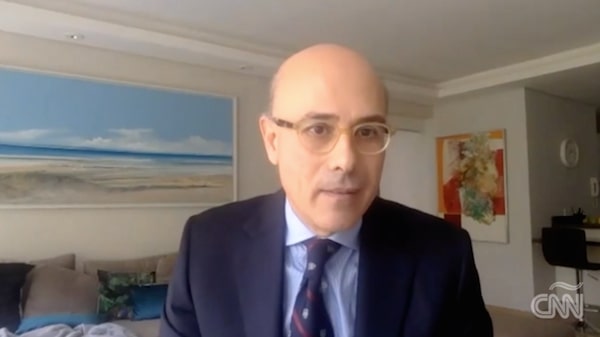
On May 24, 2020, Marcelo Longobardi and Francesc Pedró discussed the new normal in higher education in face of COVID-19 in front of the audience of CNN en Español. The situation of girls and people with disabilities in the face of an emergency education, delivered at distance and without preparation, involving millions of students and teachers around the world, was part of the agenda of this edition of the En Dialogo con Longobardi program.
“After the heroic actions delivered by the world of health, there are the heroic actions of teachers and parents who are working for the commitment that allows them to survive in the emergency,” said Pedró.
When asked how UNESCO imagines a safe format for students to return to class as soon as possible and what the recommendations for an eventual return to normality are, the director of IESALC said that imperatives of public health must be addressed above all. We will probably attend a new normal with sanitation standards; we will probably have smaller classrooms, a shift system. But the aspect of socialization within the imperative of social distancing is very difficult.
Families must understand that school and university are a place of learning, but also of experience, in libraries, in cafes, in politics, therefore the impact that the disease has on children is much less.
Pedró recalled the importance of the use of the Internet, radio and cell phones in this period of crisis “Technology has come to stay in higher education”, he said at the closing of the broadcast.
RELATED ITEMS
